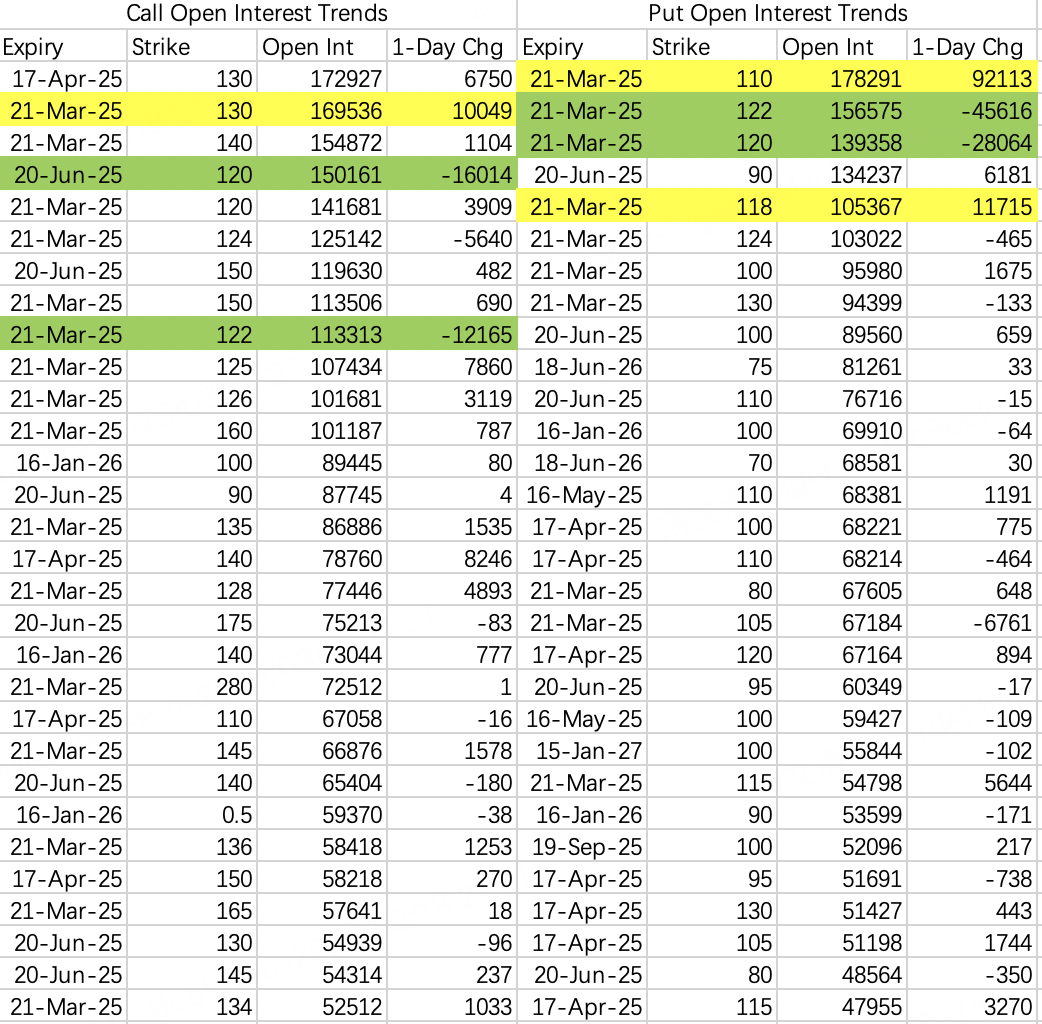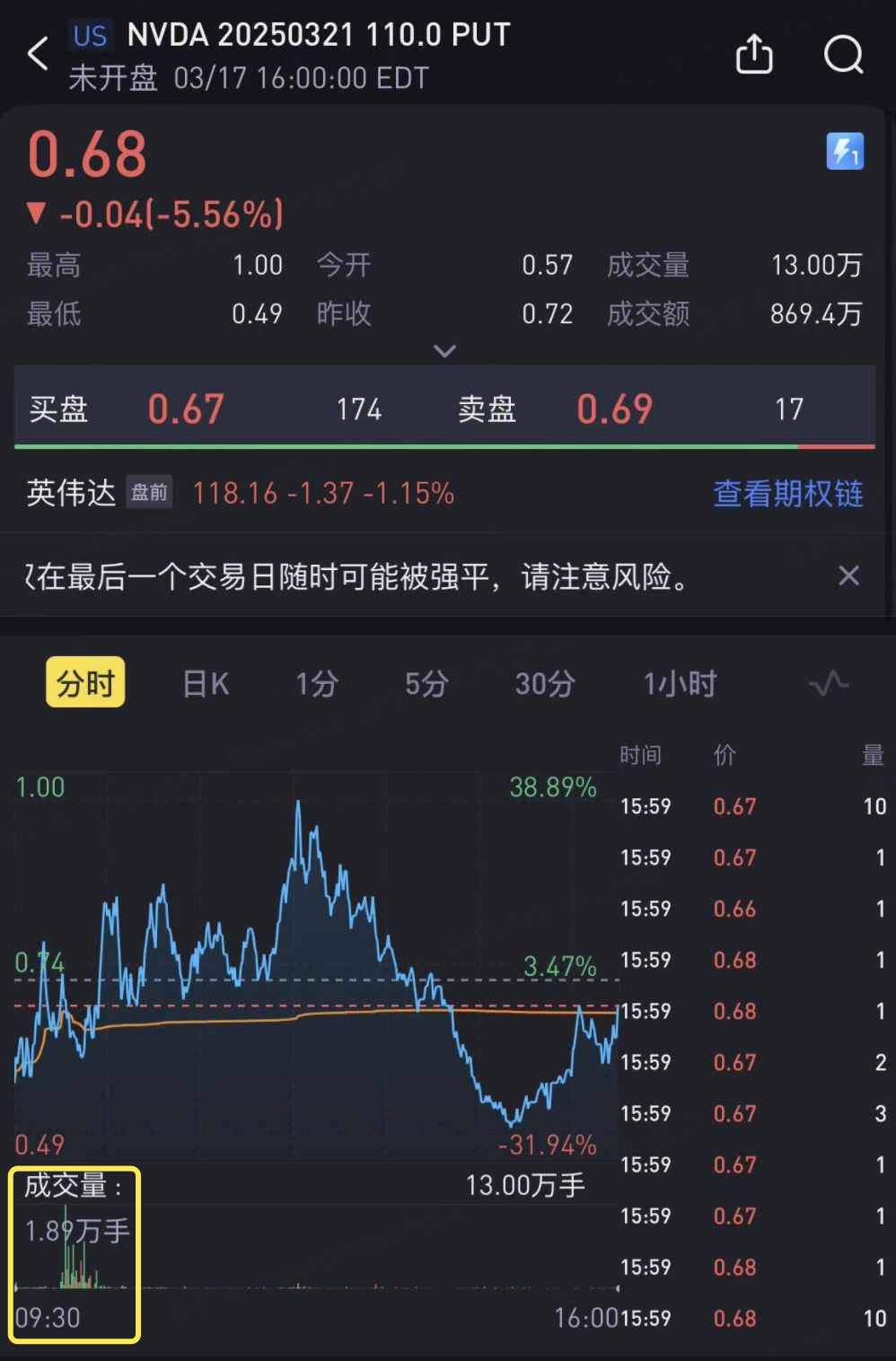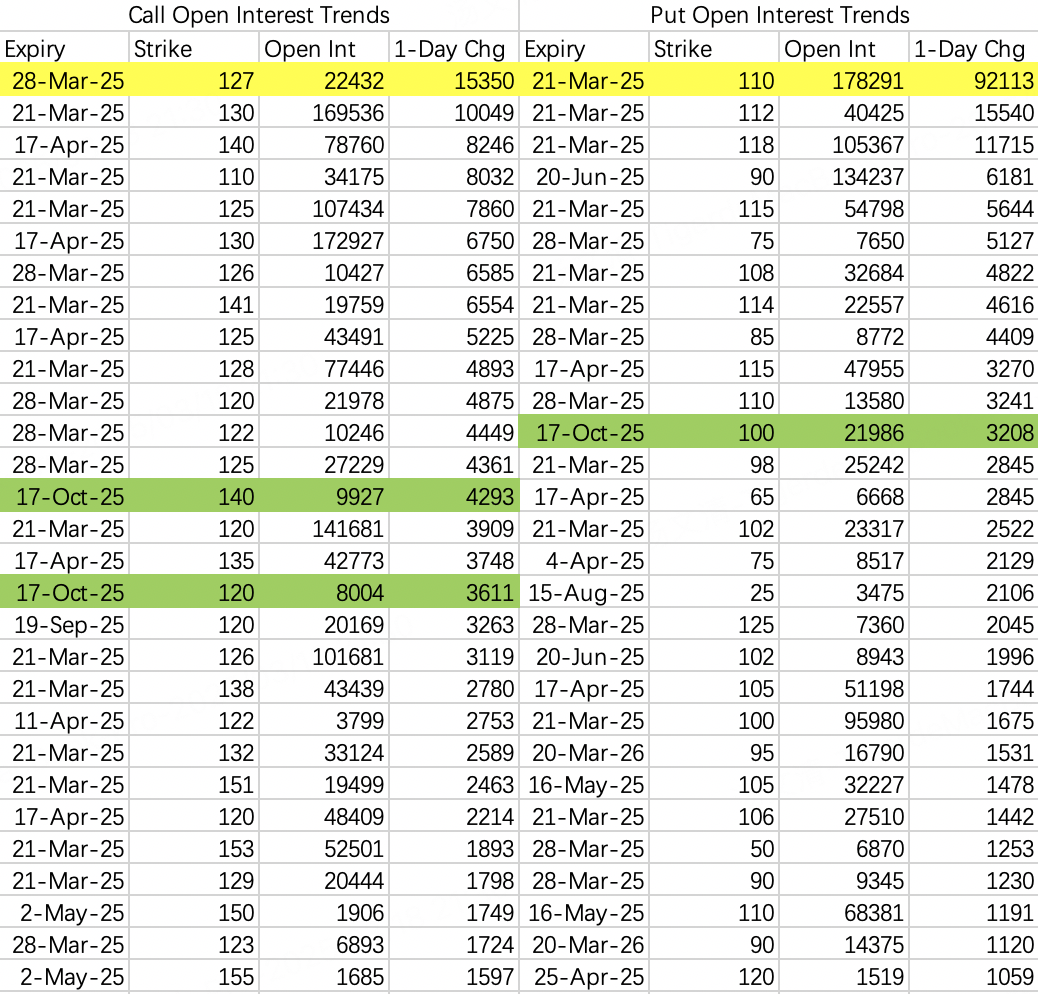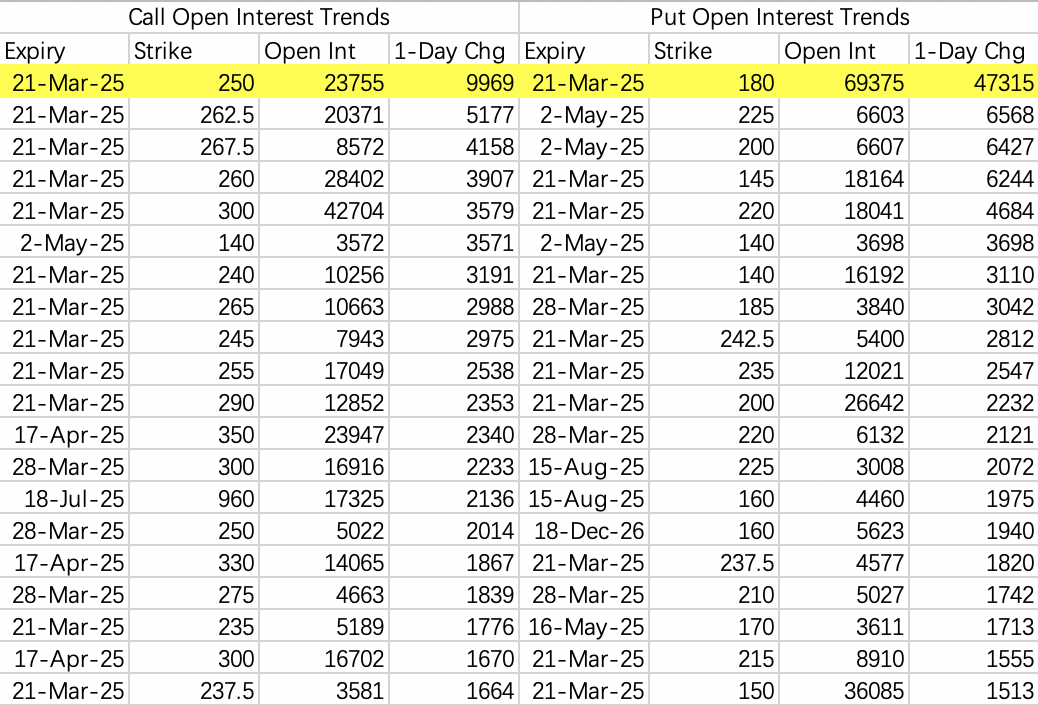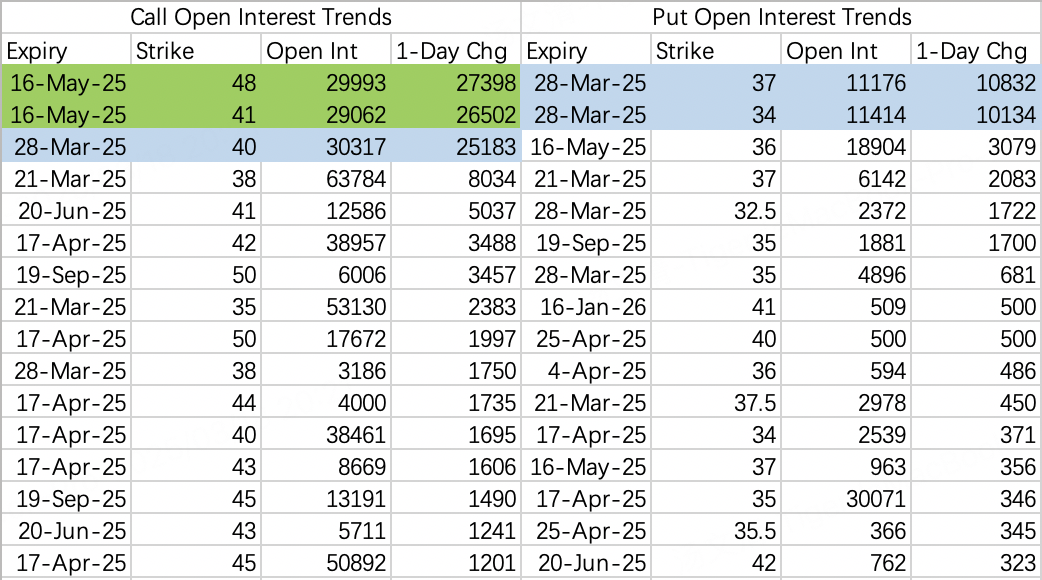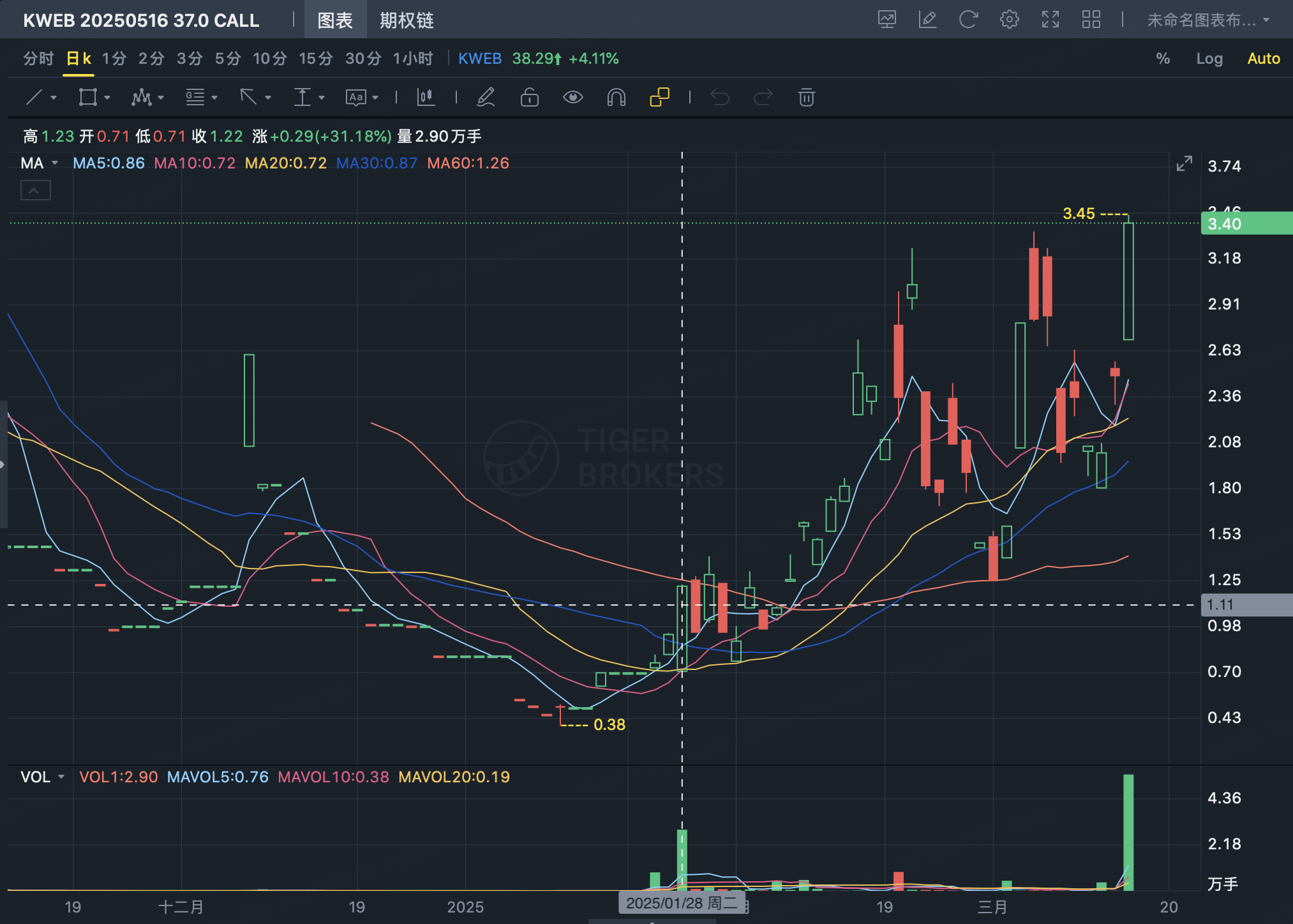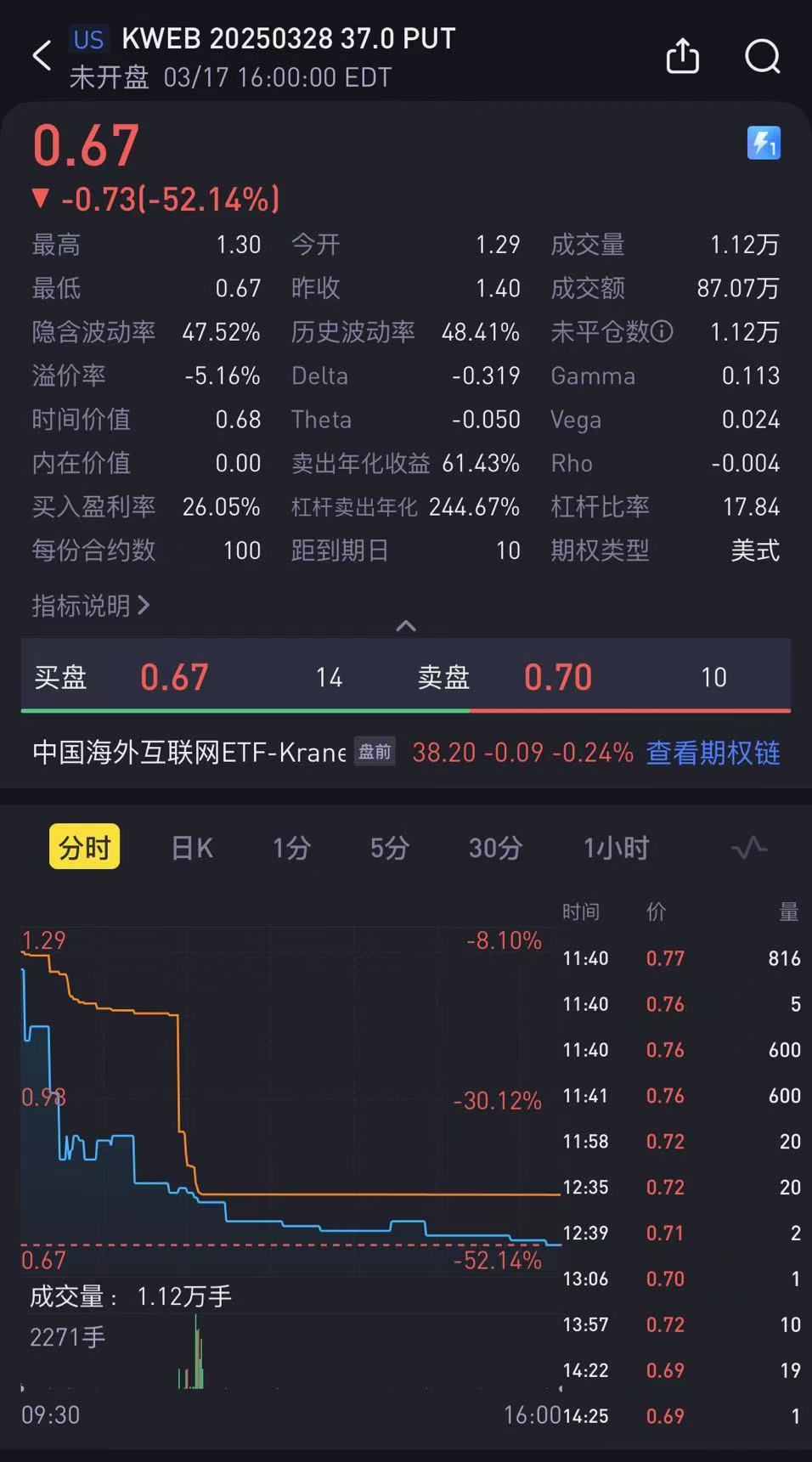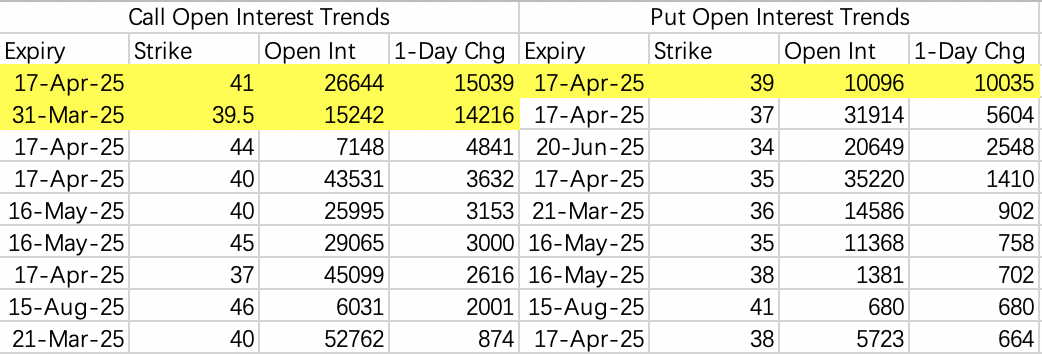The Tables Have Turned: The Sheep Fights Back
Never thought this week the "shearing party" (option sellers) and market makers would end up in a direct showdown.
$NVIDIA(NVDA)$
The options open interest data made me laugh out loud. On Monday, the "shearing party" had their fun by selling $110 puts expiring this week $NVDA 20250321 110.0 PUT$ , with 90,000 contracts opened, mostly by sellers.
As shown in the data, the trading volume was concentrated at the market open. After all, the time value of near-expiry options is tight, and the earlier you sell, the sooner you lock in profits.
However, don’t be surprised if the stock dips over the next two days—this is often the effect of heavy put-selling. Also, it’s likely that the market makers who got "sheared" are not too happy about it. At $68 per contract, the 90,000 contracts amount to over $6 million. That said, it’s still highly probable that Friday’s close will remain above $110.
Post-triple witching, we probably won’t see a particularly strong rebound. The top bullish position opened on Monday was selling next week’s $127 call $NVDA 20250328 127.0 CALL$ .
There’s also an interesting cost-free bullish strategy worth noting. As long as the stock doesn’t drop below $100 before October, this strategy involves no net cost, as the cost of buying the call is offset by selling the put and call premiums. The strike prices are aligned with expectations, so it’s worth considering:
$Tesla Motors(TSLA)$
Tesla’s "shearing party" couldn’t hold back either, selling puts. This gives me a glimpse of the recent price floor: $180 $TSLA 20250321 180.0 PUT$ , with 47,000 contracts opened. The price is indeed at an extreme.
$KraneShares CSI China Internet ETF(KWEB)$
On Monday, Chinese stocks surged, and options trading volume far exceeded the average. KWEB’s trading volume hit 450,000 contracts, well above the 90-day average of 210,000. Alibaba’s trading volume reached 514,000, compared to its 90-day average of 327,000.
Two notable large trades:
Roll Trade: This isn’t a traditional roll trade but rather a shift in strategy. Initially, it was bullish, but after the roll, it became a bearish strategy:
Rolled by:
Selling $KWEB 20250516 41.0 CALL$
Buying $KWEB 20250516 48.0 CALL$
Although a large in-market trade, the execution prices across the bid-ask spreads suggest consistency, aligning with the labeled direction.
This trade is forward-looking. The trader initially purchased an out-of-the-money bullish strategy on January 28, holding through mid-March despite volatility. Such skill is notable, making the follow-up roll trade equally important.
Bearish Strategy for Next Week: A zero-cost bearish trade with hedging, relying on small probabilities. The trader clearly doesn’t want to spend any money:
$iShares China Large-Cap ETF(FXI)$
Compared to KWEB, FXI seems a bit more active, with strategies in various directions.
Mid-Term Bullish Trade: $FXI 20250417 41.0 CALL$ appears to be a covered call based on the strike price and volume.
Protective Put: $FXI 20250417 39.0 PUT$ was bought to hedge underlying stock exposure.
Roll Trade: Rolling out of $FXI 20250331 39.5 CALL$ into a new bullish position, continuing to hold a positive outlook.
Individual Stock Highlights and Diverging Views
For example, in Pinduoduo ($PDD$):
Bearish Large Trade: $PDD 20250425 129.0 PUT$ , with a transaction value of $7.57 million.
Bullish Large Trade: $PDD 20250425 155.0 CALL$ , with a transaction value of $1.02 million.
My View
My stance remains unchanged: A pullback is likely in March–April. In the best-case scenario, the market will consolidate in a range. Either way, leveraged positions will need to be shaken out.
Disclaimer: Investing carries risk. This is not financial advice. The above content should not be regarded as an offer, recommendation, or solicitation on acquiring or disposing of any financial products, any associated discussions, comments, or posts by author or other users should not be considered as such either. It is solely for general information purpose only, which does not consider your own investment objectives, financial situations or needs. TTM assumes no responsibility or warranty for the accuracy and completeness of the information, investors should do their own research and may seek professional advice before investing.
- Tiger_CashBoostAccount·03-20Great job on your latest stock market success! Your commitment to research and analysis is evident in your results.Trade with Tiger Cash Boost Account and use contra trading toenhance your strategies."Welcome to open a CBAtoday and enjoy access to a trading limit of up to SGD 20,000with upcoming 0-commission, unlimited trading on SG, HKand US stocks. as well as ETFs.
- How to open a CBA.
- How to link your CDP account.
- Other FAQs on CBA.
- Cash Boost Account Website.
1Report - How to open a CBA.

